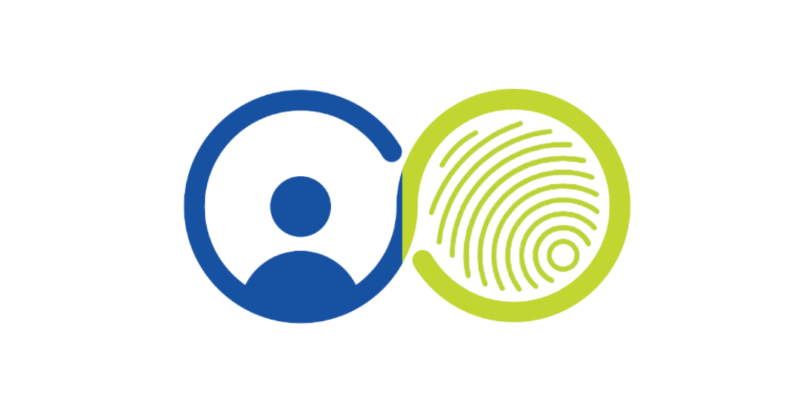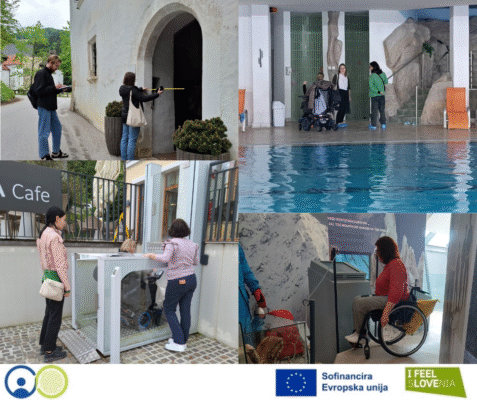
Providers of benefits under the EU Disability Card scheme must ensure basic accessibility of their facilities and the paths leading to them. As part of the project National Campaign for Raising Awareness on Social Inclusion of Persons with Disabilities, NSIOS cooperates with the Urban Planning Institute of the Republic of Slovenia (UIRS), which, through its professional expertise and long-term experience, evaluates whether the facilities truly enable equal access and use for all visitors.
In the field, experts first become familiar with the layout of the provider’s premises and the paths used by clients, as well as with the provider’s experiences with clients with different types of impairments. The assessment begins in the surroundings of the facility, where UIRS examines access options by public transport and the adequacy of parking spaces, and continues with measurements inside the building. These include key routes, rooms, and elements important for the independent use of the facility. Special attention is given to accessibility for people with mobility impairments, people who are blind or visually impaired, and people who are deaf or hard of hearing.
The results are then entered into an online evaluation system based on legally defined criteria and many years of experience in the field of universal accessibility. The final assessments of facilities are published on the EU Disability Card website and on the portal dostopnost.si. The purpose of the evaluation is not only to identify barriers but also to educate and advise providers on how they can improve accessibility.
As emphasized by UIRS, cooperation with NSIOS is entirely natural and self-evident—their common goal is to eliminate architectural and communication barriers and to ensure equal inclusion of persons with disabilities in society.
“It is our collective duty as a society to guarantee all individuals equal opportunities to participate in every aspect of life, regardless of disability. Equal treatment and dignity for every individual are, and must remain, among the fundamental values. However, these cannot be achieved without an accessible built environment,” explains UIRS Director Dr. Igor Bizjak. An accessible environment enables the preservation of personal interaction and human connection when performing key services and daily activities.
In the long term, UIRS aims to achieve greater public awareness of the challenges faced by persons with disabilities and to encourage concrete improvements to existing facilities. Special attention is also given to the legal deadline set by the Equalisation of Opportunities for Persons with Disabilities Act, which stipulates that all public buildings must be adapted by 11 December 2025.

A collage of field photographs where UIRS assesses facility accessibility.
Photo: UIRS Archive

